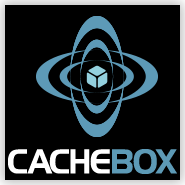Copyright Since 2005 ColdBox Platform by Luis Majano and Ortus Solutions, Corp
www.coldbox.org |
www.ortussolutions.com
Welcome to the mementifier module. This module will transform your business objects into native ColdFusion (CFML) data structures with 🚀 speed. It will inject itself into ORM objects and/or business objects alike and give them a nice getMemento() function to transform their properties and relationships (state) into a consumable structure or array of structures. It can even detect ORM entities and you don't even have to write the default includes manually, it will auto-detect all properties. No more building transformations by hand! No more inconsistencies! No more repeating yourself!
Memento pattern is used to restore state of an object to a previous state or to produce the state of the object.
You can combine this module with cffractal (https://forgebox.io/view/cffractal) and build consistent and fast 🚀 object graph transformations.
Just open your config/Coldbox.cfc and add the following settings into the moduleSettings struct under the mementifier key or create a new config/modules/mementifier.cfc in ColdBox 7:
// module settings - stored in modules.name.settings
moduleSettings = {
mementifier = {
// Turn on to use the ISO8601 date/time formatting on all processed date/time properites, else use the masks
iso8601Format = false,
// The default date mask to use for date properties
dateMask = "yyyy-MM-dd",
// The default time mask to use for date properties
timeMask = "HH:mm:ss",
// Enable orm auto default includes: If true and an object doesn't have any `memento` struct defined
// this module will create it with all properties and relationships it can find for the target entity
// leveraging the cborm module.
ormAutoIncludes = true,
// The default value for relationships/getters which return null
nullDefaultValue = '',
// Don't check for getters before invoking them
trustedGetters = false,
// If not empty, convert all date/times to the specific timezone
convertToTimezone = "",
// Verifies if values are not numeric and isBoolean() and do auto casting to Java Boolean
autoCastBooleans : true
}
}The memementifier will listen to WireBox object creations and ORM events in order to inject itself into target objects. The target object must contain a this.memento structure in order for the mementifier to inject a getMemento() method into the target. This method will allow you to transform the entity and its relationships into native struct/array/native formats.
Each entity must be marked with a this.memento struct with the following (optional) available keys:
this.memento = {
// An array of the properties/relationships to include by default
defaultIncludes = [],
// An array of properties/relationships to exclude by default
defaultExcludes = [],
// An array of properties/relationships to NEVER include
neverInclude = [],
// A struct of defaults for properties/relationships if they are null
defaults = {},
// A struct of mapping functions for properties/relationships that can transform them
mappers = {},
// Don't check for getters before invoking them
trustedGetters = $mementifierSettings.trustedGetters,
// Enable orm auto default includes
ormAutoIncludes = $mementifierSettings.ormAutoIncludes,
// Use the ISO 8601 formatter for this component
iso8601Format = $mementifierSettings.iso8601Format,
// Use a custom date mask for this component
dateMask = $mementifierSettings.dateMask,
// Use a custom time mask for this component
timeMask = $mementifierSettings.timeMask,
// A collection of mementifier profiles you can use to create many output permutations
profiles = {
name = {
defaultIncludes : [],
defaultExcludes : [],
neverInclude = [],
defaults = {},
mappers = {}
...
}
},
// Auto cast boolean strings to Java boolean
autoCastBooleans = true
}This array is a collection of the properties and/or relationships to add to the resulting memento of the object by default. The mementifier will call the public getter method for the property to retrieve its value. If the returning value is null then the value will be an empty string. If you are using CF ORM and the ormAutoIncludes setting is true (by default), then this array can be auto-populated for you, no need to list all the properties.
defaultIncludes = [
"firstName",
"lastName",
// Relationships
"role.roleName",
"role.roleID",
"permissions",
"children"
]You can also create a single item of [ "*" ] which will tell the mementifier to introspect the object for all properties and use those instead for the default includes.
defaultIncludes = [ "*" ]Also note the
ormAutoIncludessetting, which if you are using a ColdFusion ORM object, we will automatically add all properties to the default includes.
You can also define here properties that are NOT part of the object graph, but determined/constructed at runtime. Let's say your User object needs to have an avatarLink in it's memento. Then you can add a avatarLink to the array and create the appropriate getAvatarLink() method. Then the mementifier will call your getter and add it to the resulting memento.
defaultIncludes = [
"firstName",
"lastName",
"avatarLink"
]
/**
* Get the avatar link for this user.
*/
string function getAvatarLink( numeric size=40 ){
return variables.avatar.generateLink( getEmail(), arguments.size );
}You may also wish to alias properties or getters in your components to a different name in the generated memento. You may do this by using a colon with the left hand side as the name of the property or getter ( without the get ) and the right hand side as the alias. For example let's say we had a getter of getLastLoginTime but we wanted to reference it as lastLogin in the memento. We can do this with aliasing.
defaultIncludes = [
"firstName",
"lastName",
"avatarLink",
"lastLoginTime:lastLogin"
]The DefaultIncldues array can also include nested relationships. So if a User has a Role relationship and you want to include only the roleName property, you can do role.roleName. Every nesting is demarcated with a period (.) and you will navigate to the relationship.
defaultIncludes = [
"firstName",
"lastName",
"role.roleName",
"role.roleID",
"permissions"
]Please note that all nested relationships will ONLY bring those properties from the relationship. Not the entire relationship.
This array is a declaration of all properties/relationships to exclude from the memento state process.
defaultExcludes = [
"APIToken",
"userID",
"permissions"
]The DefaultExcludes array can also declare nested relationships. So if a User has a Role relationship and you want to exclude the roleID property, you can do role.roleId. Every nesting is demarcated with a period (.) and you will navigate to the relationship and define what portions of the nested relationship can be excluded out.
defaultExcludes = [
"role.roleID",
"permissions"
]This array is used as a last line of defense. Even if the getMemento() call receives an include that is listed in this array, it will still not add it to the resulting memento. This is great if you are using dynamic include and exclude lists. You can also use nested relationships here as well.
neverInclude = [
"password"
]This structure will hold the default values to use for properties and/or relationships if at runtime they have a null value. The key of the structure is the name of the property and/or relationship. Please note that if you have a collection of relationships (array), the default value is an empty array by default. This mostly applies if you want complete control of the default value.
defaults = {
"role" : {},
"office" : {}
}This structure is a way to do transformations on actual properties and/or relationships after they have been added to the memento. This can be post-processing functions that can be applied after retrieval. The key of the structure is the name of the property and/or relationship. The value is a closure that receives the item and the rest of the memento and it must return back the item mapped according to your function.
mappers = {
"lname" = function( item, memento ){ return item.ucase(); },
"specialDate" = function( item, memento ){ return dateTimeFormat( item, "full" ); }
}You can use mappers to include a key not found in your memento, but rather one that combines values from other values.
mappers = {
"fullname" = function( _, memento ) { return memento.fname & " " & memento.lname; }
}Now that you have learned how to define what will be created in your memento, let's discover how to actually get the memento. The injected method to the business objects has the following signaure:
struct function getMemento(
includes="",
excludes="",
struct mappers={},
struct defaults={},
boolean ignoreDefaults=false,
boolean trustedGetters,
boolean iso8601Format,
string dateMask,
string timeMask,
string profile = "",
boolean autoCastBooleans = true
)You can find the API Docs Here: https://apidocs.ortussolutions.com/coldbox-modules/mementifier/1.0.0/index.html
As you can see, the memento method has also a way to add dynamic includes, excludes, mappers and defaults. This will allow you to add upon the defaults dynamically.
We have also added a way to ignore the default include and exclude lists via the ignoreDefaults flag. If you turn that flag to true then ONLY the passed in includes and excludes will be used in the memento. However, please note that the neverInclude array will always be used.
You can use the this.memento.profiles to define many output profiles a part from the defaults includes and excludes. This is used by using the profile argument to the getMemento() call. The mementifier will then pass in the profile argument to the object and it's entire object graph. If a child of the object graph does NOT have that profile, it will rever to the defaults instead.
This is a great way to encapsulate many different output mementifiying options:
// Declare your profiles
this.memento = {
defaultIncludes : [
"allowComments",
"cache",
"cacheLastAccessTimeout",
"cacheLayout",
"cacheTimeout",
"categoriesArray:categories",
"contentID",
"contentType",
"createdDate",
"creatorSnapshot:creator", // Creator
"expireDate",
"featuredImage",
"featuredImageURL",
"HTMLDescription",
"HTMLKeywords",
"HTMLTitle",
"isPublished",
"isDeleted",
"lastEditorSnapshot:lastEditor",
"markup",
"modifiedDate",
"numberOfChildren",
"numberOfComments",
"numberOfHits",
"numberOfVersions",
"parentSnapshot:parent", // Parent
"publishedDate",
"showInSearch",
"slug",
"title"
],
defaultExcludes : [
"children",
"comments",
"commentSubscriptions",
"contentVersions",
"customFields",
"linkedContent",
"parent",
"relatedContent",
"site",
"stats"
],
neverInclude : [ "passwordProtection" ],
mappers : {},
defaults : { stats : {} },
profiles : {
export : {
defaultIncludes : [
"children",
"comments",
"commentSubscriptions",
"contentVersions",
"customFields",
"linkedContent",
"relatedContent",
"siteID",
"stats"
],
defaultExcludes : [
"commentSubscriptions.relatedContentSnapshot:relatedContent",
"children.parentSnapshot:parent",
"parent",
"site"
]
}
}
};
// Incorporate all defaults into export profile to avoid duplicate writing them
this.memento.profiles[ "export" ].defaultIncludes.append( this.memento.defaultIncludes, true );
Then use it via the getMemento() method call:
content.getMemento( profile: "export" )
Please note that you can still influence the profile by passing in extra includes, excludes and all the valid memento arguments.
You can turn on trusted getters during call time by passing true to the trustedGetters argument.
You might be in a situation where you still want to add custom magic to your memento and you will want to override the injected getMemento() method. No problem! If you create your own getMemento() method, then the mementifier will inject the method as $getMemento() so you can do your overrides:
struct function getMemento(
includes="",
excludes="",
struct mappers={},
struct defaults={},
boolean ignoreDefaults=false,
boolean trustedGetters,
boolean iso8601Format,
string dateMask,
string timeMask,
string profile = "",
boolean autoCastBooleans = true
){
// Call mementifier
var memento = this.$getMemento( argumentCollection=arguments );
// Add custom data
if( hasEntryType() ){
memento[ "typeSlug" ] = getEntryType().getTypeSlug();
memento[ "typeName" ] = getEntryType().getTypeName();
}
return memento;
}Mementifier can also convert date/time objects into specific formats but also a specific timezone. You will use the convertToTimezone configuration setting and set it to a valid Java Timezone string. This can be either an abbreviation such as "PST", a full name such as "America/Los_Angeles", or a custom ID such as "GMT-8:00". Nice listing: https://garygregory.wordpress.com/2013/06/18/what-are-the-java-timezone-ids/
convertToTimezone : "UTC"
That's it. Now mementifier will format the date/times with the appropriate selected timezone or use the system default timezone.
This feature was created to assist in support of the cffractal results map format. It will process an array of objects and create a returning structure with the following specification:
results- An array containing all the unique identifiers from the array of objects processedresultsMap- A struct keyed by the unique identifier containing the memento of each of those objects.
Example:
// becomes
var data = {
"results" = [
"F29958B1-5A2B-4785-BE0A11297D0B5373",
"42A6EB0A-1196-4A76-8B9BE67422A54B26"
],
"resultsMap" = {
"F29958B1-5A2B-4785-BE0A11297D0B5373" = {
"id" = "F29958B1-5A2B-4785-BE0A11297D0B5373",
"name" = "foo"
},
"42A6EB0A-1196-4A76-8B9BE67422A54B26" = {
"id" = "42A6EB0A-1196-4A76-8B9BE67422A54B26",
"name" = "bar"
}
}
};Just inject the results mapper using this WireBox ID: ResultsMapper@mementifier and call the process() method with your collection, the unique identifier key name (defaults to id) and the other arguments that getMemento() can use. Here is the signature of the method:
/**
* Construct a memento representation using a results map. This process will iterate over the collection and create a
* results array with all the identifiers and a struct keyed by identifier of the mememnto data.
*
* @collection The target collection
* @id The identifier key, defaults to `id` for simplicity.
* @includes The properties array or list to build the memento with alongside the default includes
* @excludes The properties array or list to exclude from the memento alongside the default excludes
* @mappers A struct of key-function pairs that will map properties to closures/lambadas to process the item value. The closure will transform the item value.
* @defaults A struct of key-value pairs that denotes the default values for properties if they are null, defaults for everything are a blank string.
* @ignoreDefaults If set to true, default includes and excludes will be ignored and only the incoming `includes` and `excludes` list will be used.
*
* @return struct of { results = [], resultsMap = {} }
*/
function process(
required array collection,
id="id",
includes="",
excludes="",
struct mappers={},
struct defaults={},
boolean ignoreDefaults=false,
boolean trustedGetters
){}By default, mementifier will evaluate if the incoming value is not numeric and isBoolean() and if so, convert it to a Java Boolean so when marshalled it will be a true or false= in the output json. However we understand this can be annoying or too broad of a stroke, so you can optionally disable it in different levels:
- Global Setting
- Entity Level
getMemento()Level
You can set the autoCastBooleans global setting in the mementifier settings.
You can set the autoCastBooleans property in the this.memento struct.
You can pass in the autoCastBooleans argument to the getMemento() and use that as the default.
Copyright Since 2005 ColdBox Framework by Luis Majano and Ortus Solutions, Corp www.ortussolutions.com
Because of His grace, this project exists. If you don't like this, then don't read it, its not for you.
"Therefore being justified by faith, we have peace with God through our Lord Jesus Christ: By whom also we have access by faith into this grace wherein we stand, and rejoice in hope of the glory of God. And not only so, but we glory in tribulations also: knowing that tribulation worketh patience; And patience, experience; and experience, hope: And hope maketh not ashamed; because the love of God is shed abroad in our hearts by the Holy Ghost which is given unto us. ." Romans 5:5
"I am the way, and the truth, and the life; no one comes to the Father, but by me (JESUS)" Jn 14:1-12






